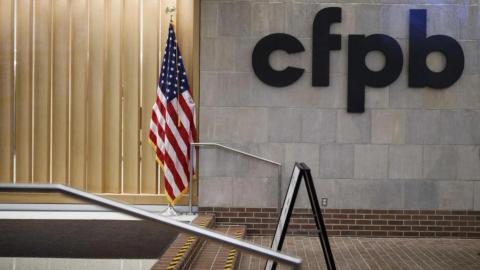CFPB Announces Plans to Reassess Open Banking Regulations: What You Need to Know
In October, the Consumer Financial Protection Bureau (CFPB) introduced the Personal Financial Data Rights final rule, aimed at empowering Americans with the ability to direct their banks to share financial data with third-party providers. This initiative marks a significant step toward enhancing consumer control over personal financial information.
Potential Changes to the Personal Financial Data Rights Rule
However, according to Bloomberg Law, the Trump administration is reportedly considering reopening this rule, which could lead to its amendment or even elimination. This decision comes amid rising concerns from banks regarding potential liabilities related to data breaches and the fees associated with accessing consumer data.
Concerns Raised by Financial Institutions
Financial institutions have expressed their apprehensions for several reasons:
- Liability Risks: Banks are worried about the legal responsibilities they might incur in case of data breaches.
- Access Fees: They seek the ability to charge for access to customer data.
- Data Abuse Prevention: Banks want mechanisms to prevent firms from misusing customer data.
The future of the Personal Financial Data Rights rule remains uncertain, with speculation surrounding possible revisions or complete removal.
Impact on Financial Innovation and Consumer Protection
Steve Boms, CEO of FDATA North America, a group advocating for open banking, commented on the implications of reopening the rulemaking process, stating, “This means stalling financial innovation and prolonging uncertainty for both businesses and consumers in America.”
Legal Challenges Against the CFPB
The rule has faced significant pushback from traditional financial institutions. Shortly after its finalization, both the Bank Policy Institute and the Kentucky Bankers Association filed a lawsuit against the CFPB. Their argument centers on the claim that the CFPB has overstepped its authority, placing the entire burden of customer protection on banks while avoiding responsibility for overseeing data recipients.
Regulatory Changes Under the Trump Administration
This situation highlights a broader trend under the Trump administration, as the CFPB shifts its approach and scales back its regulatory activities. For instance:
- In March, the CFPB repealed an interpretive rule stating that pay-in-four Buy Now, Pay Later (BNPL) lenders should be treated similarly to credit card providers.
- Recently, the agency has withdrawn multiple lawsuits against major banks, including JPMorgan Chase, Bank of America, and Wells Fargo, concerning fraud on the Zelle peer-to-peer payment network.
Legislative Actions Against Tech Oversight
Additionally, a proposed rule granting the CFPB oversight of major technology companies such as Apple, Google, and X, which provide digital payment applications and wallets, has been effectively terminated by the Senate and House of Representatives.
As the situation develops, it remains crucial for consumers and businesses to stay informed about potential changes to financial regulations and their implications.







